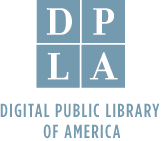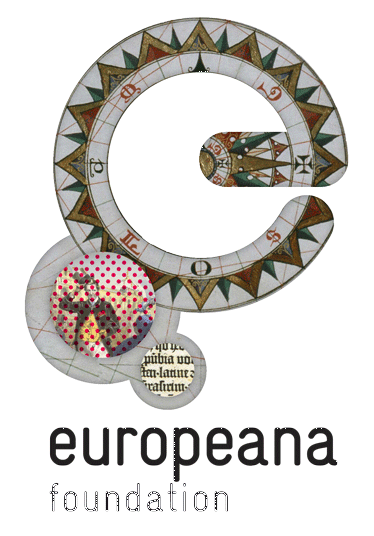
Digital Public Library of America and Europeana Announce Collaboration
Washington, DC—Two major digital library networks have reached an agreement to collaborate in ways that will make a large part of the world’s cultural heritage available to a large part of the world’s population. The Digital Public Library of America (DPLA), which will provide access to digital collections from libraries, museums, and archives in the United States, announced today that it will design its technical structure in a way to promote interoperability with that of Europeana, which has developed a similar system to link the major libraries, museums, and archives of Europe.
Robert Darnton, a DPLA Steering Committee member and University Librarian at Harvard, said, “The association between the DPLA and Europeana means that users everywhere will eventually have access to the combined riches of the two systems at a single click. The aggregated databases will include many millions of books, pamphlets, newspapers, manuscripts, images, recordings, videos, and other materials in many formats.”
Jill Cousins, Executive Director of Europeana, welcomed the agreement, saying that “Europeana was designed to be open and interoperable, and to be able to collaborate with the DPLA is a validation of that aim. By this combined effort on two continents, Europeana and the DPLA hope to promote the creation of a global network with partners from around the world.”
Another outcome of this collaboration will be a virtual exhibition about the migration of Europeans to America. The DPLA and Europeana will demonstrate the potential of their combined collections by digitizing and making freely available material about the journey from the Old World to the New. This pilot project will include text and images about the experience of the uprooted as they abandoned their homes to seek a new life thousands of miles across a treacherous ocean. Letters, photographs, and official records open up unfamiliar views into the harsh world inhabited by Europeans from the shtetl communities of Russia to the peasant villages of Ireland. And equally vivid testimonies illustrate the culture shock and hard lot of the immigrants after their arrival. Everyone in the United States, including Amerindians, descends from immigrants, and nearly everyone in Europe has some connection with migration, either within Europe itself or across the ocean. All will be invited to stroll digitally through this rich exhibition.
A Statement of Common Principles: DPLA-Europeana
The Digital Public Library of America and Europeana share a common goal: to make the riches of libraries, museums, and archives available, free of charge, to everyone in the world. They will be guided in this mission by the following principles.- They will make their systems and data interoperable to the greatest possible extent.
- They will promote open access to the greatest possible extent through joint existing and new policies concerning content, data, and metadata.
- They will collaborate regularly in developing specific aspects of their systems, beginning with:
- an interoperable data model
- a shared source code
- cooperative collection building.
###

About the Digital Public Library of America
The DPLA Steering Committee is leading the first concrete steps toward the realization of a large-scale digital public library that will make the cultural and scientific record available to all. This impact-oriented research effort unites leaders from all types of libraries, museums, and archives with educators, industry, and government to define the vision for a digital library in service of the American public. The DPLA Secretariat is located at the Berkman Center for Internet & Society at Harvard University; the Steering Committee comprises library and foundation leaders across the nation. More information can be found at http://dp.la.

About Europeana
Europeana brings together the digitized content of Europe’s galleries, libraries, museums, archives and audiovisual collections. Currently Europeana gives integrated access to some 20 million books, films, paintings, museum objects and archival documents from some 1500 content providers. The content is drawn from every European member state and the interface is in 29 European languages. Europeana receives its main funding from the European Commission. More information can be found at http://www.europeana.eu/portal/.
Contact:
Rebekah Heacock
Project Coordinator
Berkman Center for Internet & Society
[email protected]
Jonathan Purday
Senior Communications Advisor
Europeana
[email protected]
